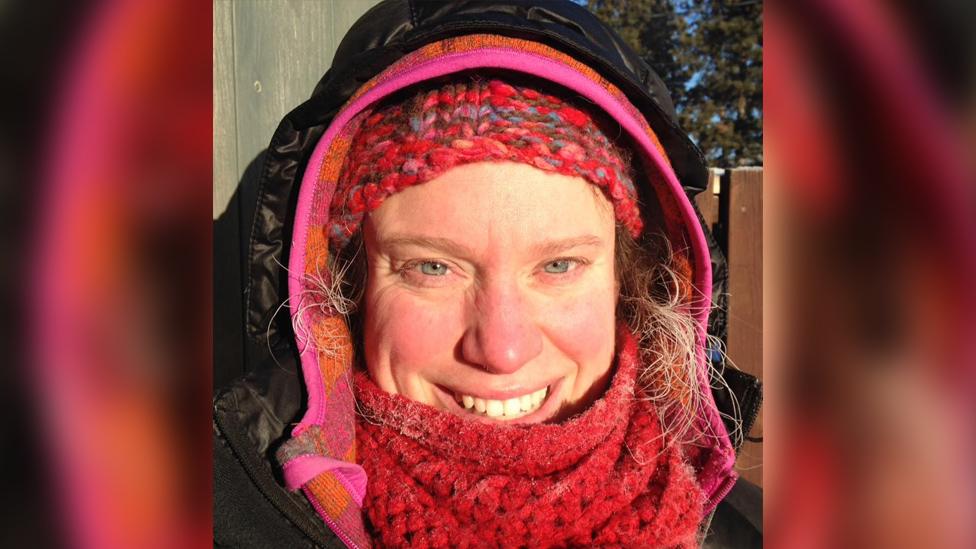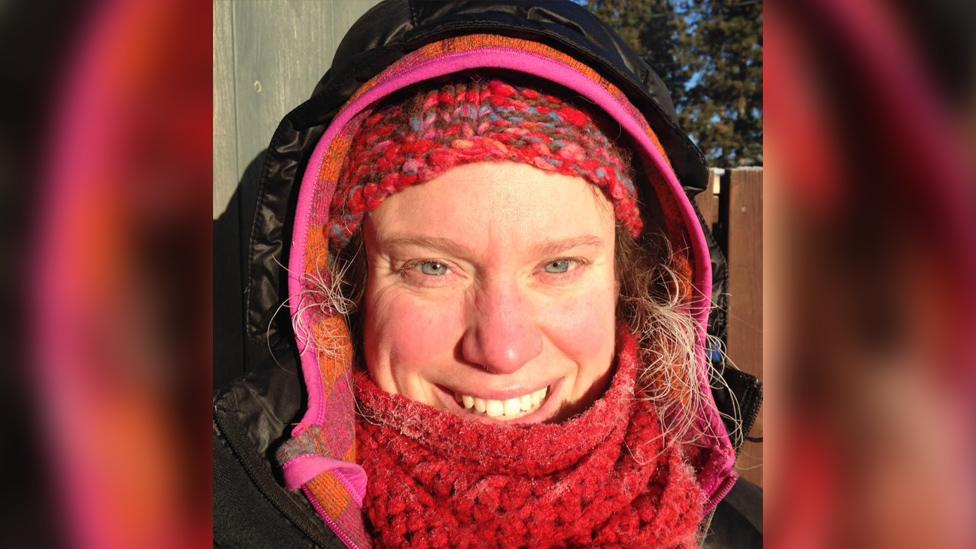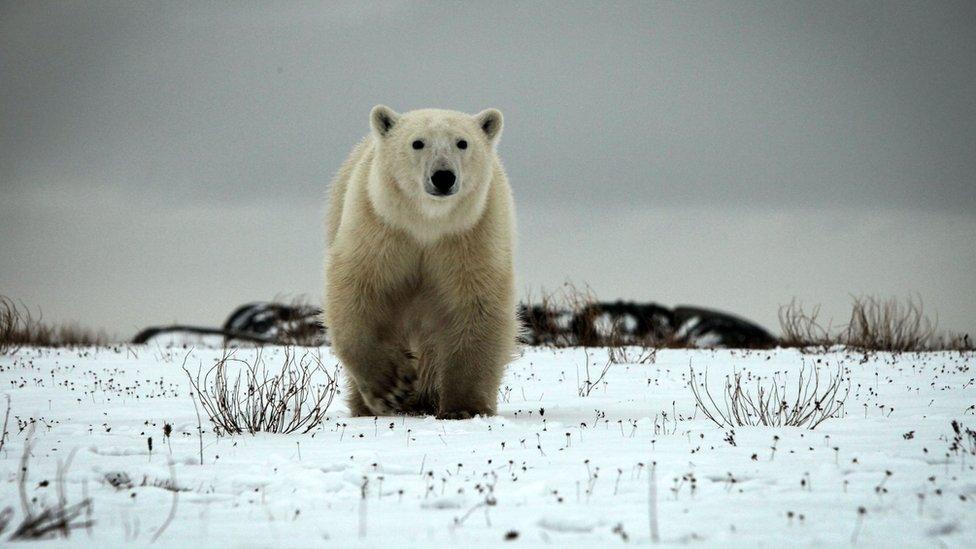Starving, injured bear killed woman and baby, says Canada coroner
- Published

Valerie Theoret
A woman and her baby killed last November were victims of a "predatory attack" by an injured and emaciated grizzly bear, a Canadian coroner says.
Valerie Theoret, 37, and her 10-month-old daughter Adele Roesholt, were killed almost instantly.
Yukon authorities say Theoret could not have prevented the sudden attack.
The bear was killed by Gjermund Roesholt, Theoret's partner, when he returned home from laying traps for game.
The Yukon coroner's service released its report into the tragic deaths on Wednesday.
It sheds more light into the circumstances of the grizzly attack - a rare occurrence in the northern territory - and includes a caution that bear attacks can happen anytime during the year.
Only three other fatal grizzly bear attacks have occurred in the Yukon since 1996.
The family lived in a cabin northeast of Mayo, a remote community about 400km (250 miles) north of Whitehorse, the territory's capital.
Conservation Services director Gordon Hitchcock told journalists that the couple were "an experienced pair of backcountry users" who were careful about attracting potentially dangerous wildlife to their cabin.
They had owned the cabin since 2015 and had flown there earlier that autumn. They had planned to stay and trap until the new year, when Theoret was to return to her teaching job in Whitehorse.
On November 26, 2018 - the day of the attack - the family had breakfast together before Mr Roesholt left to run one of the family's trap lines.
He noticed fresh bear tracks on his return home mid-afternoon. They appeared to be heading towards the family's cabin.
After checking the cabin for his partner and their infant daughter and finding it empty, he walked towards the nearby sauna, keeping his loaded rifle at the ready.
About 240 metres from the cabin, Mr Roesholt heard a growl and saw the grizzly charge out from the bush about 15 metres (50 feet) from where he was standing. He fired four shots - one fatal - at the bear.
He found the bodies of Ms Theoret and his daughter a short distance away.
Department of the Environment investigators noticed the bear tracks switched from a dragging pattern to "an intentional picking up of its feet" close to where it attacked Theoret and her daughter, who was on her mother's back in a baby carrier.
The bear had moved about two metres off the trail where the pair were walking, and remained concealed by the branches of a spruce tree until the sudden attack.
A post-mortem examination performed on the 18-year-old male bear found that it was emaciated and "would not have been capable of hibernation given its complete lack of body fat".
Conservation officers said they did not know what caused the bear to be in such distress.
It had turned to to uncommon food sources in its desperation, including a porcupine. That meal had injured the grizzly, which was found to have multiple quills penetrating its digestive system.
While officials said the death of Theoret and her infant daughter appeared to have been an unavoidable tragedy, they cautioned it showed that the danger of bear encounters remain year round.
The hibernation period in the region usually lasts from around November to late spring.
- Published28 November 2018

- Published29 August 2018

- Published24 May 2018
